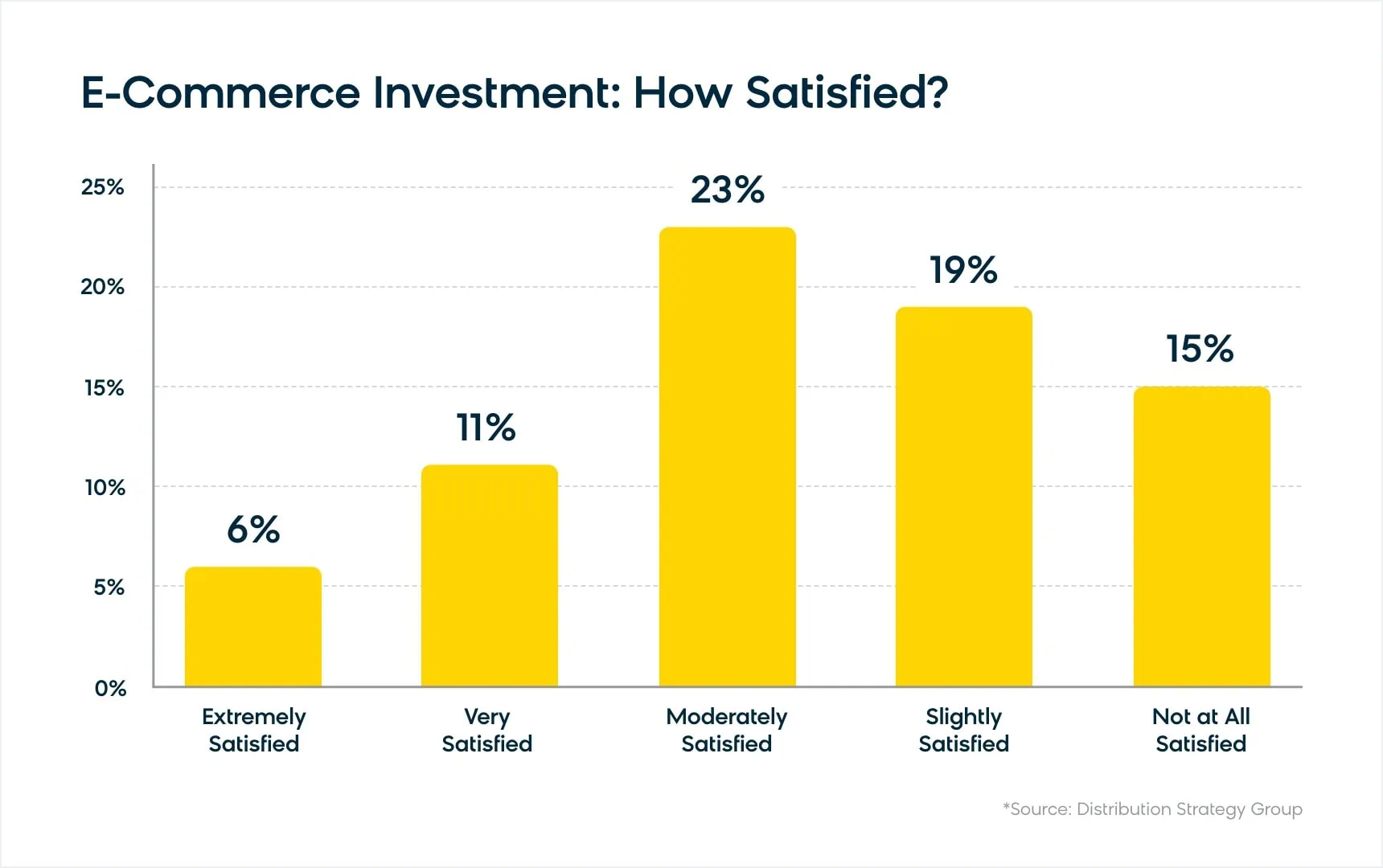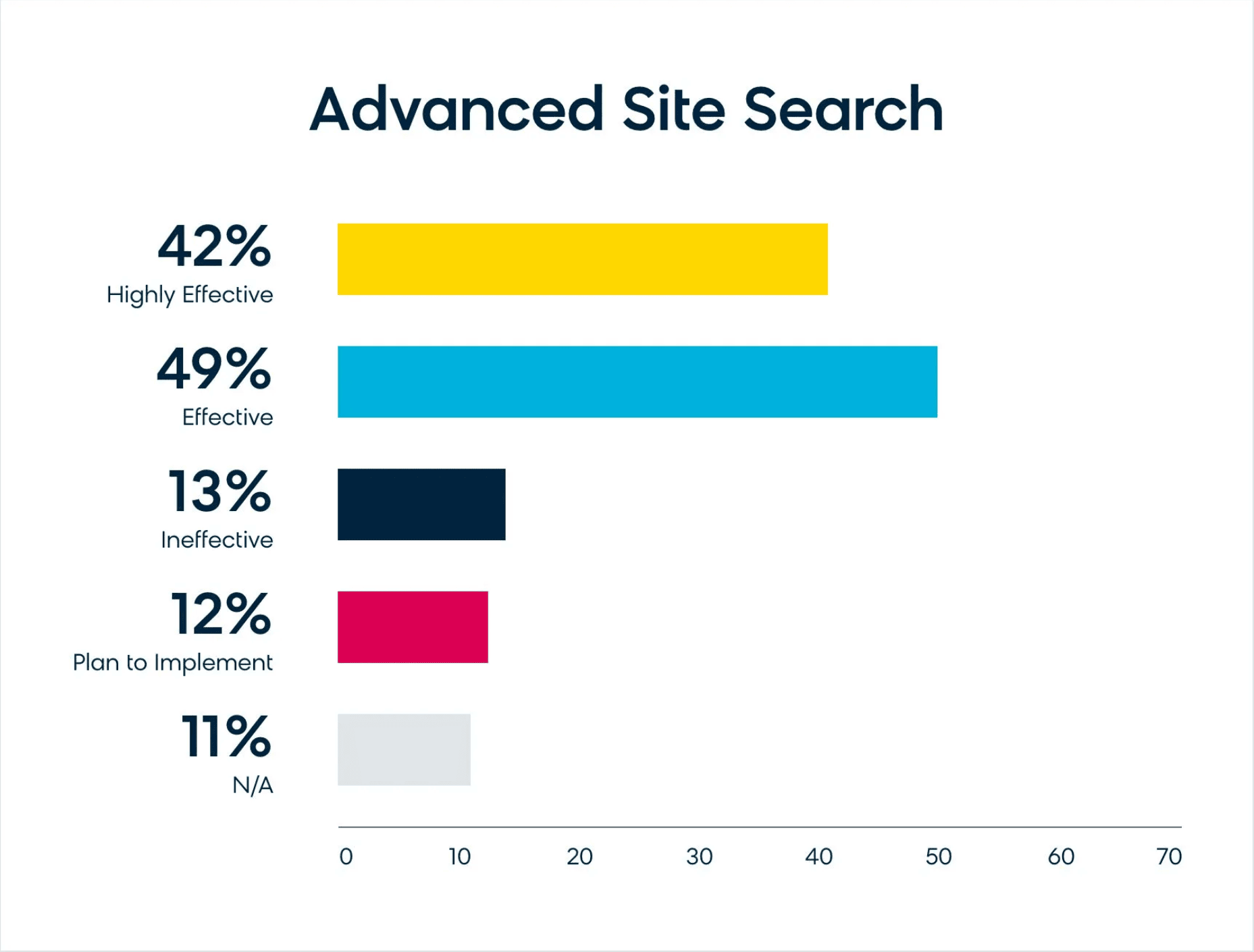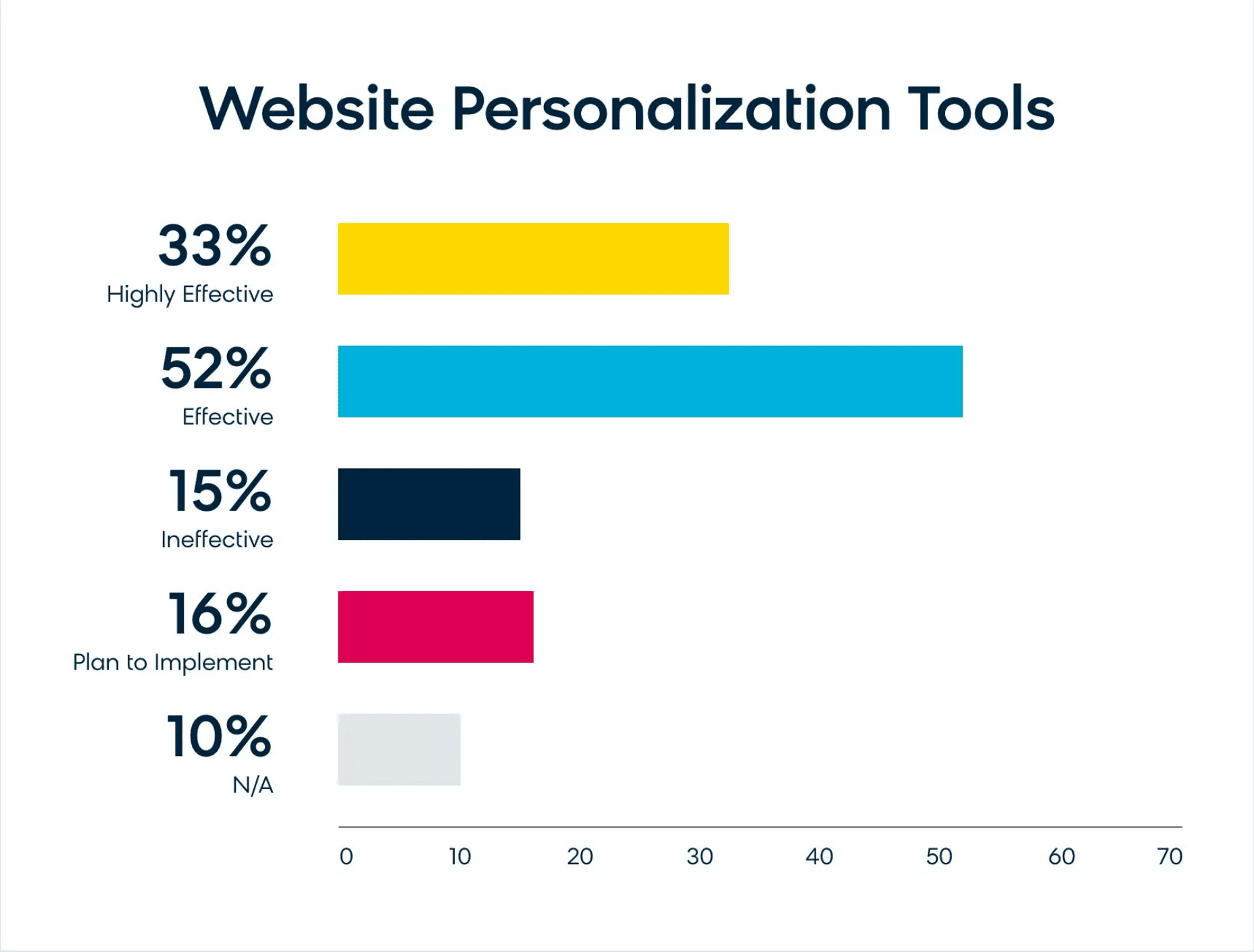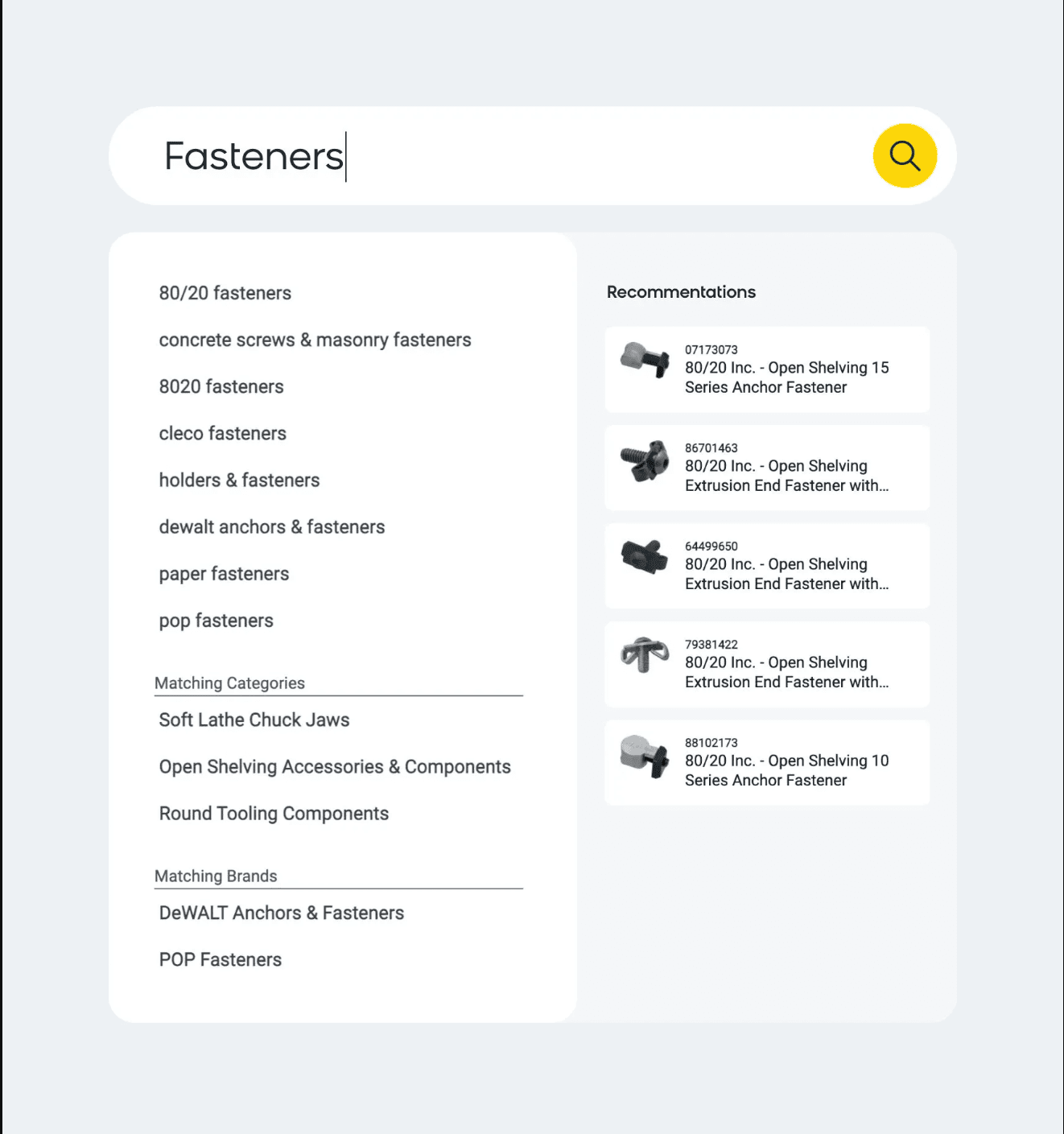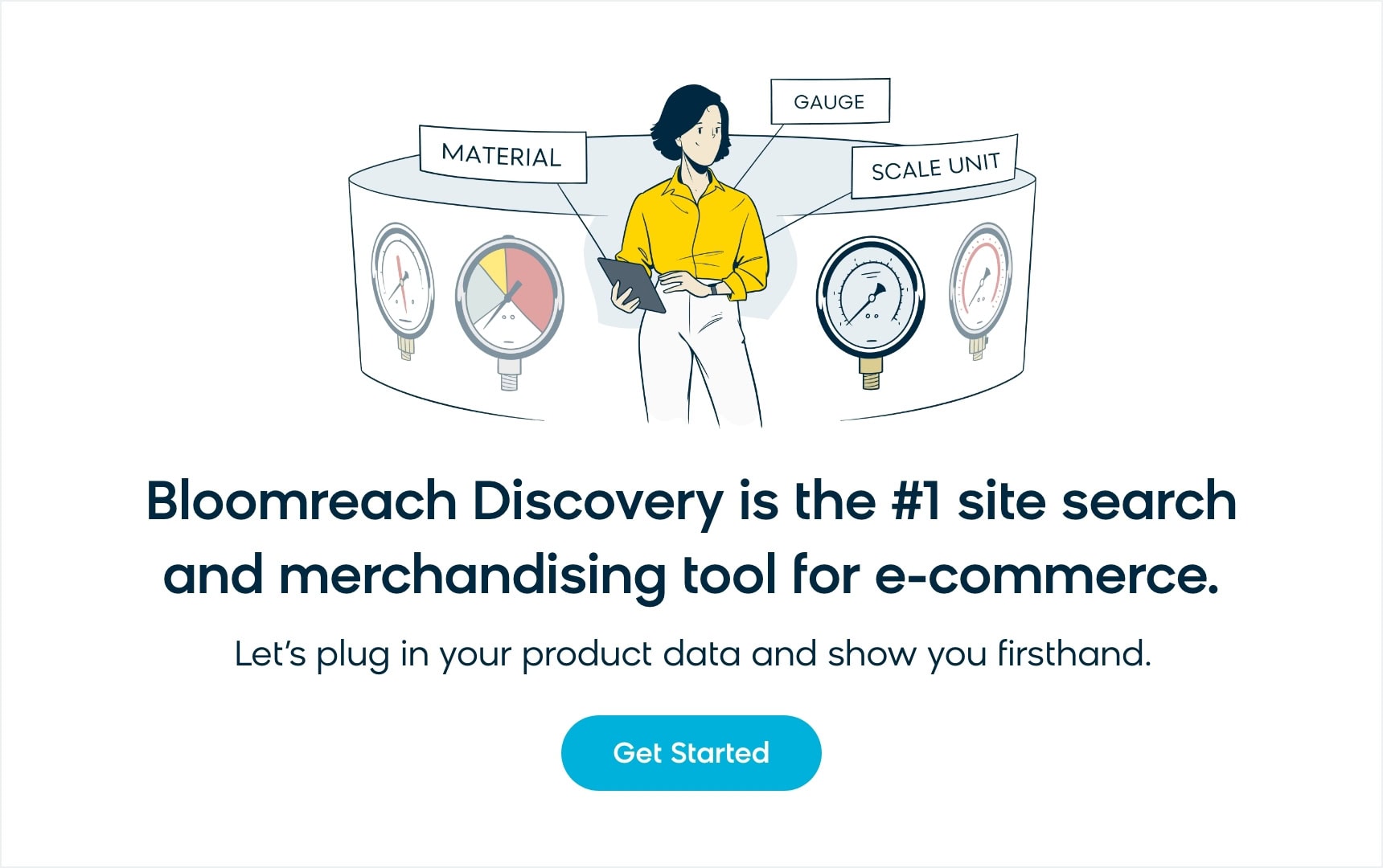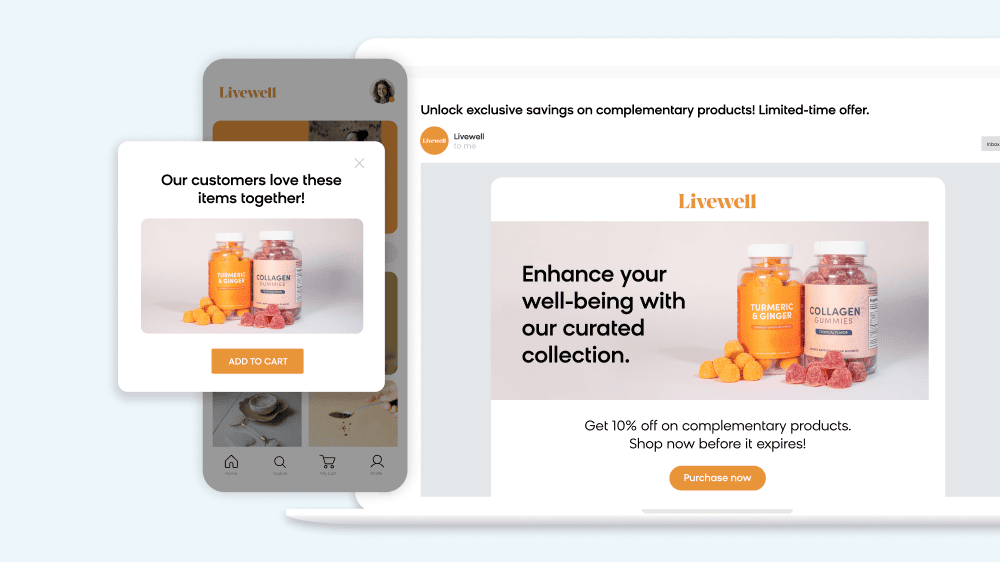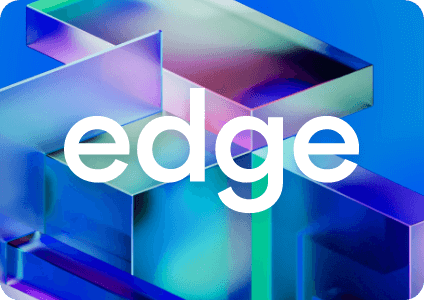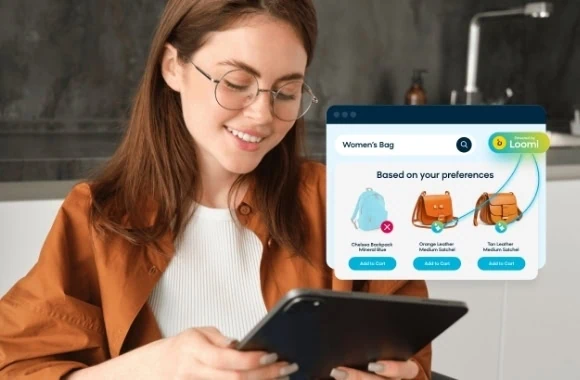Since there’s a lot of talk about “good” digital experiences lately, especially when it comes to business to business (B2B) ecommerce, the meaning behind their creation and implementation often gets lost along the way. Nonetheless, many distributors are adopting ecommerce strategies and building out their tech stacks, with the adoption growth rate steadily increasing every year.
But there tends to be a gap between adoption and satisfaction for B2B distributors. Even though up to 38% of B2B distribution companies at the $100M to $500M revenue mark invest in ecommerce, only 6% walk away as “extremely satisfied” with their investment, with 23% feeling “moderately satisfied” and 15% feeling “not at all satisfied.”
Even though it’s clear that your distribution company needs to provide value to your business customers (as well as your wholesale customers), it can be hard to get there if you only focus on standing up your online store. An ecommerce website can only do so much on its own. In addition to an ecommerce platform, every website needs experience solutions behind it to really make a difference to your business buyers, encouraging them to transact with your brand and remain loyal to it in the future.
One key solution is product discovery, and more specifically, site search. Our survey report with BECK Ecommerce found advanced site search to be a “highly effective approach” to building the ecommerce experiences that your buyers want. Our B2B experts believe that no less than 75% to 90% of ecommerce site visitors use site search — or even go directly to it once landing on your ecommerce website.
Getting search right for your business clients will take considerable effort from a systems, knowledge, and ongoing optimization standpoint. But technology can step in and help impact the B2B buyer’s journey (and thus, your business model) in unprecedented ways. Let’s go through the four actionable steps that a buyer should be taking with your distribution website, from both a retail and wholesale ecommerce perspective.
Intelligent Search
Believe it or not, there is a cost — and not always a good one — to the “endless aisle.” While choice is great, B2B buyers still need to find what they’re looking for, and a lot of the time, they might not even realize the full extent of what that is. This is why product discovery is critical to a great buying experience. In today’s low-loyalty digital market, your prospect can easily make the switch to any of your competitors’ ecommerce sites. Prevent this by differentiating the product discovery experience with “intelligent search” that can quickly adapt to understand a buyer’s aim or purpose.
Smart search bars with extensive dictionaries and multilingual capabilities can identify words and separate product types from attributes, like compatible material, specifications met, cut type, coating/finish, and retail or wholesale pricing. Over time, your search bar grows smarter as it continues to parse these buyer queries, making online shopping easier than ever on the business end.
This combination of natural language processing (NLP) and machine learning (ML) is called “semantic understanding,” and while these retrieval and ranking algorithms are not unique to the ecommerce industry, they come together organically to create an intelligent search experience that retrieves all relevant products and ranks them accordingly to maximize business impact. Not only does it create automated sales processes, but it’s also a great solution to rising customer acquisition costs, especially in paid search advertising (SEM) and search engine optimization (SEO) of organic traffic — two strategies that many of our survey respondents still find “highly effective.”
Consideration
Your buyer will move forward from the “intelligent search” phase of the purchasing process and identify a group of candidate products to “consider.” Sounds like it would be easy due to the flexible, agile nature of your website, right? Well, yes and no. While a buyer can most likely deliberate over your products available on your ecommerce website, it doesn’t always mean your site is necessarily optimized to solve their problem (i.e., successfully retrieving a search query for any one of your specific customer groups).
Your prospect needs a list of relevant search results — in addition to clear, consistent information — to consider their options before the transaction. The secret sauce to surfacing apt search results with plenty of information is having a healthy combination of both product and buyer data, or “commerce data.” This way, your prospect will gain a comprehensive, streamlined snapshot of your products, while still experiencing tailored selections to their preferences and needs.
In fact, many of our survey respondents found website personalization tools that create personalized digital experiences at scale — like Bloomreach’s product search engine — to be “effective when done right.” So, if your data requires some improvements or is just seriously lacking, it’s recommended to add an automated, self-learning search solution to fill in the gaps, fix inconsistencies, provide better details, and better understand your buyer’s intent.
Confirmation
Now that your buyer has established a “consideration set” of results, they’ll likely evaluate each selection in depth to “confirm” their final decision. Not only should your company keep abreast with inventory management and implement the proper information to help their effort, but educational content like blogs, podcasts, and guides can also be extremely helpful to leverage during the confirmation phase. Although 90% of respondents in our report indicated content marketing’s importance, only 9% have included it on their B2B roadmaps.
Fortunately, it’s easier than you think to begin implementing a content strategy — all you need are the right tools. The structuring of any modern content strategy should acknowledge the buyer’s motivation and support their autonomy to make decisions through various sales channels. By becoming a thought leader in your particular niche, you can fill your distribution site with the right educational materials to guide the buyer toward a successful transaction each and every time.
It’s not enough to just have a show-and-tell about the product, either. Instead, your business needs to present relevant details through various customer use cases. At the end of the day, your customer doesn’t care about all the impressive product details as much as how the product could potentially solve their problem. It’s the reason they visited your ecommerce site in the first place.
Conversion
Based on the data collected from another report with CommerceNext and CommX, respondents believe that personalization (61%) and site search/guided navigation (57%) are the website experience upgrades with the most potential to drive growth, revenue, and conversions for businesses in the immediate future.
But your buyers need more than personalized sales portals to place their orders. They need to feel confident when adding products to their cart, and your company can earn their trust by investing in personalized site search, which will provide recommendations based on product data, visitor data, and search intelligence with the intention to convert.
All in all, it’s crucial to commit to both digital strategy and digital consistency when investing in new tech tools like intelligent site search. Remember, consistency has a major impact on the buyer’s journey, including the transaction — meaning all your search tools, UI components, and content must lead your prospect to the end of the sales funnel.
Even though the above actionable steps indicate a successful online customer journey, there is still a large gap between the features that make it to roadmaps, such as online self-service tools, omnichannel strategy, and content marketing, and the ones that occupy wishlists. Check out our report for more information, and consider using a connected, cohesive solution like Bloomreach Discovery (and Content). Overall, it will make the buyer decision-making process easier for prospects and returning customers and more lucrative for your business. For more information on this topic, read about B2B best practices and the steps your distributors need to take to drive business success.


